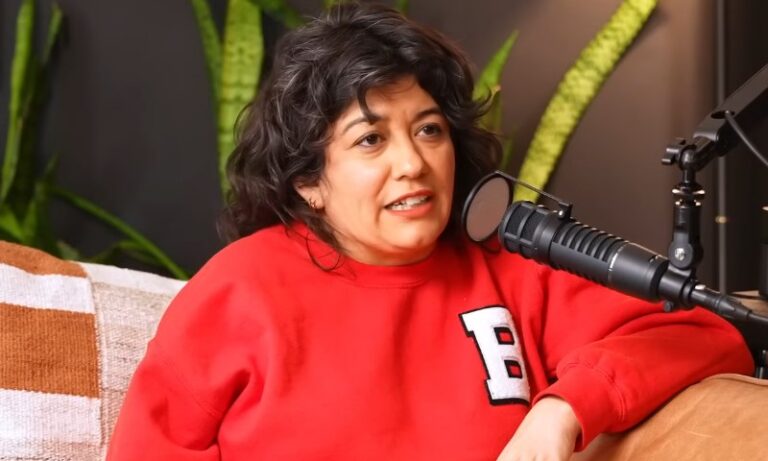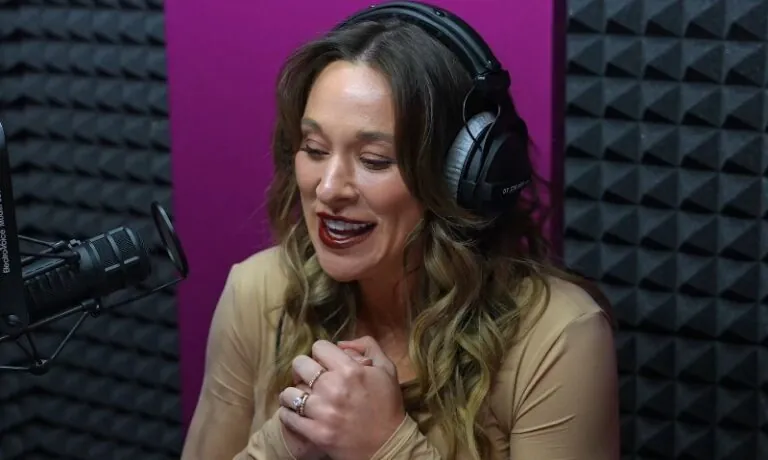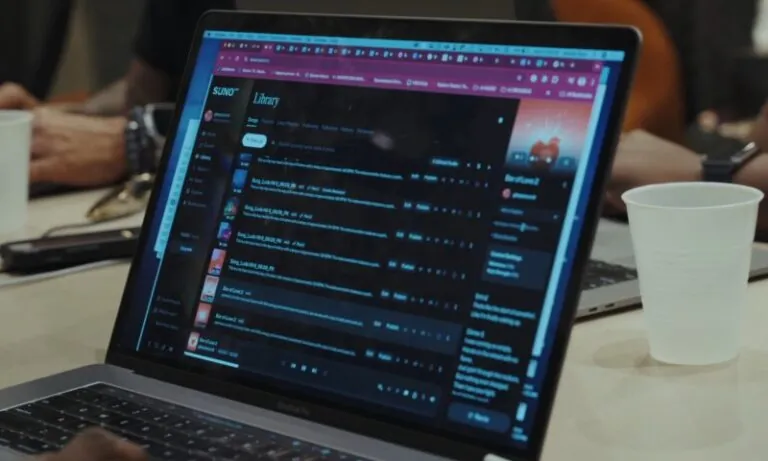SheMD Podcast has become a platform where women’s health stories find voice, blending personal testimony with education.
Hosted by Dr. Thaïs Aliabadi and Mary Alice Haney, the show highlights real struggles faced by women and emphasizes the importance of medical advocacy.
In a powerful episode, model, actress, and entrepreneur Lori Harvey shares her personal health journey.
Her experience shines a light on years of misdiagnosis, frustration, and the eventual discovery of conditions that changed her outlook on life and well-being.
Lori Harvey’s Health

Conversations about women’s health often reveal that symptoms are dismissed until they reach unbearable levels. Lori Harvey’s story reflects this reality. She began experiencing signs of distress as a teenager, only to face years of unanswered questions.
Her early struggles were not only physical but also emotional, shaping how she viewed herself and her body.
Lori recalls health struggles beginning at age sixteen.
Painful periods were only the beginning, followed by uncontrollable weight fluctuations, acne, rosacea, and facial hair growth. Meals left her bloated, inflamed, and uncomfortable, creating a constant reminder that her body was signaling distress.
She lived with the persistent sense that something was wrong, even when outwardly she seemed to meet expectations of beauty and health.
Symptoms Lori faced during her teen years included:
- Painful and irregular periods
- Unexplained weight fluctuations
- Breakouts such as acne and rosacea
- Growth of facial hair
- Bloating and inflammation after meals
- A lingering sense of imbalance in her body
Medical Gaslighting & Misdiagnosis
Seeking medical care did not bring relief.
Lori visited multiple doctors, hoping someone would piece the puzzle together. Instead, she encountered dismissal, with professionals telling her she was “fine” despite her ongoing discomfort.
Prescriptions were usually limited to Tylenol or Ibuprofen, which provided no meaningful relief.
Emotional consequences began to surface, with Lori describing feelings of frustration, sadness, and self-doubt. Not being heard in medical settings compounded her physical suffering with psychological strain.
Turning Point: Meeting Dr. Thaïs Aliabadi
A major shift occurred when Lori connected with Dr. Thaïs Aliabadi.
During their first meeting, Dr. Aliabadi paid close attention to her symptoms and immediately recognized that more serious conditions might be involved. Instead of dismissal, Lori received validation.
In one consultation, she learned that she had both Polycystic Ovary Syndrome (PCOS) and Endometriosis. After years of frustration, she finally had an explanation for her suffering.
For clinics and providers aiming to streamline secure communications with patients, platforms like Documo offer HIPAA-compliant cloud faxing solutions that can simplify workflows and support timely, confidential care coordination.
For Lori, this moment was about more than a medical diagnosis. It was about being seen, believed, and given a plan for care.
Understanding the Diagnoses
Before Lori’s story can be appreciated in its entirety, it is important to examine what PCOS and Endometriosis involve.
Both conditions impact millions of women, yet remain widely misunderstood or overlooked.
PCOS
Polycystic Ovary Syndrome affects approximately one in ten women of childbearing age.
It is a hormonal disorder that disrupts menstrual cycles and influences metabolic health.
For Lori, the diagnosis explained years of irregular periods, acne, weight fluctuation, and persistent discomfort.
Common symptoms and risks associated with PCOS include:
- Irregular or absent periods
- Excess androgen leading to acne and excess hair growth
- Difficulty managing weight
- Increased risk of infertility
Higher likelihood of insulin resistance and cardiovascular issues, particularly among Black women
Endometriosis
Endometriosis occurs when tissue resembling the uterine lining grows outside the uterus, creating inflammation and scarring.
Lori’s extreme menstrual pain and pelvic discomfort aligned with this condition.
She had lived with symptoms for years without recognition, which is an experience many women share.
Key symptoms and risks tied to Endometriosis include:
- Severe cramps unrelieved by over-the-counter medications
- Chronic pelvic pain
- Heavy or prolonged menstrual bleeding
- Increased risk of infertility
High likelihood of being overlooked in Black women, who are diagnosed 50 percent less often due to bias in medicine
Impact of Diagnosis
Receiving accurate diagnoses transformed Lori’s relationship with her health. Instead of temporary fixes, she now had a treatment plan designed for long-term relief. Her care included Metformin, hormone-balancing therapies, and practical lifestyle changes. Adopting an anti-inflammatory diet and scheduling regular lymphatic drainage sessions improved her physical comfort.
Lori emphasized that self-care was not just physical but also emotional. With clarity, she found renewed confidence and peace within her body. She expressed a sense of belonging in her own skin that she had not felt for years.
Positive outcomes following diagnosis included:
- Access to appropriate medication
- Dietary and lifestyle improvements
- Physical comfort replacing years of discomfort
- Restored self-esteem and confidence
Broader Issues Exposed

Lori’s experiences highlight systemic problems faced by many women, particularly women of color.
Conditions such as PCOS and Endometriosis are often underdiagnosed in Black women, who are more likely to face dismissal of their pain.
Lori’s years of being unheard are part of a broader pattern that needs to be addressed in healthcare.
Representation matters in women’s health conversations.
By sharing her story on a public platform, Lori contributes to dismantling stigma and raising awareness.
Dr. Aliabadi’s work in providing such spaces for women’s voices creates momentum for change.
Lori’s transparency shows other women that persistence in seeking answers can lead to life-changing results.
Broader lessons from Lori’s experience include:
- Recognition of systemic bias in healthcare
- Importance of patient advocacy
- Value of platforms that amplify women’s voicesNecessity of equitable care and education for all women
Lori’s Message to Women
Lori encourages women to trust themselves and remain firm in seeking answers. Self-advocacy is essential when symptoms persist without explanation.
She emphasizes the importance of community, urging women to educate themselves and share knowledge with their peers.
Breaking silence around chronic health conditions reduces stigma and encourages others to seek help.
Her message is a call to find providers who truly listen. A supportive care team can change not only medical outcomes but also emotional well-being.
Lori’s advice reminds women that taking control of their health story can lead to empowerment and healing.
Core advice Lori shares with women includes:
- Advocate for your health without hesitation
- Share knowledge within your community
- Normalize conversations about chronic conditions
- Seek providers who respect your concerns
Closing Segment
Today, Lori Harvey lives with renewed optimism and control over her health.
Her message extends beyond her personal story, calling for reform, medical equity, and greater awareness of women’s health issues.
Listeners are encouraged to support advocacy, seek out resources, and share their experiences.
Her story is a reminder that seeking answers and fighting for proper care can lead to transformation and hope.
Related Posts:
- Inside Metallica’s M72 World Tour - Highlights So…
- The Ultimate Beginner’s Guide to Starting a Podcast…
- How Do You Write a Podcast Script That Engages Listeners?
- 150 Best Podcast Interview Questions to Ask
- Top 12 Moments From Whatever Podcast - My Favorite Picks
- Morbid Podcast - Balancing Humor and Horror in True Crime









